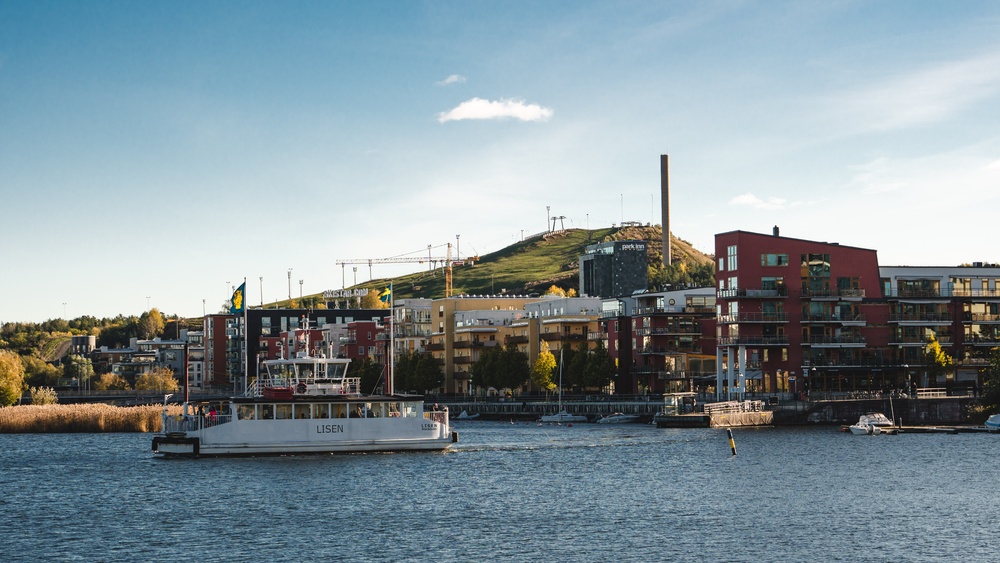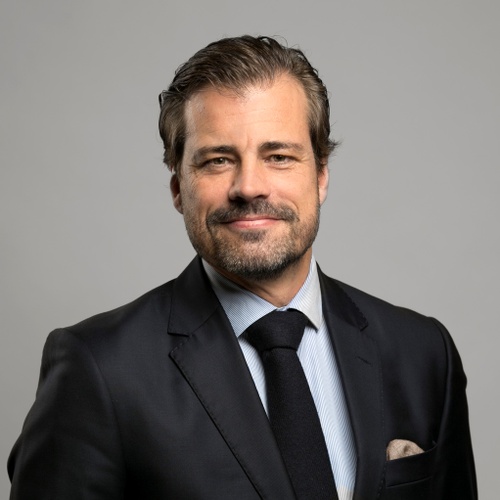Why Stockholm's new green district is a sustainable water pioneer
 Hammarby Sjöstad. Photo: Visit Stockholm
Hammarby Sjöstad. Photo: Visit StockholmAsk Stockholmers what they like most about their city and many will likely answer ‘the water’. It’s not surprising, really — Stockholm is situated on 14 islands, and so you’re hardly ever farther than a stone’s throw away from a glistening stretch of the stuff.
Today, the high quality of the water is a great source of pride for locals and the City itself is considered a vanguard of water and wastewater innovation. Stockholm is home to a plethora of renowned water innovation companies as well as Sjöstadsverket, a unique R&D facility for wastewater treatment, and each year hosts the world’s largest water science congress, SIWI World Water Week.
However, just 50 years ago the water quality in Stockholm was far from outstanding. Something needed to be done, and it was for this reason the City instigated its first wave of water innovations.
“We have a long history of water innovation, not only municipal but also industry wastewater. And we have good management in place with a lot of research to back it up,” says Östen Ekengren, Vice President of the Swedish Environmental Research Institute. “At our pilot plant, which is on top of Henriksdal’s wastewater treatment plant, we are running multiple research projects, and can also evaluate new technologies on realistic water which gives you proof of concept - something which is very important for early-stage startups.”
Groundbreaking water treatment technology
Stockholm is Europe’s fastest-growing capital, with an estimated population growth of 25 percent in the coming 20 years. This forecast growth was the incentive behind the 10 billion SEK (1 billion US dollars) investment the City has pumped into expanding its drinking waterworks, and the equivalent sum that has been invested into developing a new sewage treatment facility. Once up and running in 2026 it will be the largest of its kind in the world
“Demand for land in Stockholm is greater than ever. There were too many houses surrounding the Bromma wastewater treatment plant, so a decision was reached to shut it down and develop a new plant at Henriksdal where capacity can be doubled as we also need to treat the water from the closed plant,” explains Östen. “And so we were asked to find a technology called membrane bioreactor. By using this technology, you don’t need more land - you can treat double the amount of water in the same space.”
Traditional sewage works remove particles, nitrogen and phosphorus by filtering the sewage through sediment. Stockholm’s new system utilises a membrane filter, which is 40 percent more effective at removing nitrogen and removes almost all microplastics. In short, it’s possible to both treat more water and the resulting water is of better quality. The remaining sludge can be made into fertiliser or biogas, the latter of which can be used to fuel vehicles or for heating and electricity generation.
Global water shortage
Located less than two kilometres from the Henriksdal plant is the sustainable residential district of Hammarby Sjöstad. Part of Stockholm’s Green Innovation District, a new innovation area in the west of the City, halving water consumption is just one of Hammarby Sjöstad’s environmental goals that form a roadmap to reach climate-neutrality by 2030.
“For a long time we thought of tap water as a resource that would be there forever. We always know there’s enough water here in Stockholm and that the water quality is really good, but now our population is growing and there’s more awareness that water is not something you can waste,” says Yuan-Chen Qian, chairperson of Hammarby Sjöstad’s housing association.
Working within construction for Ikano Group, Yuan-Chen is perhaps more aware than most of the repercussions of careless water consumption. In both her professional and personal life, she takes measures to reduce water consumption and educate others about practical ways they too can make small but critical changes.
“When I work as a property manager, we have tried to put filters on the taps so you get less water out - or have a toilet that only flushes half the tank. I have two daughters and I tell them not to take long showers every day, and to turn off the tap when they brush their teeth. It’s the little things,” she says.
To curb overuse of water it will be mandatory for new buildings in Hammarby Sjöstad, as well as the rest of the City, to include meters that measure each apartment’s use of cold and warm water. While the issue of water scarcity isn’t, at present, as pressing in Stockholm as in many other areas around the world, it is still a pervasive global problem that the City’s water companies and researchers are racing to address. Treating wastewater so that it reaches drinkable quality requires just a fifth of the energy it takes to turn seawater into freshwater. Pumping water into a city alone could be between 10-15 percent of all of its energy consumption, and people are starting to wake up to how connected water is to the climate crisis.
It’s realities like this that make the innovations taking place in Stockholm so vital, and why - with their specialist expertise in this field - Swedish experts are regularly consulted to advise on urgent water challenges faced by countries including India, China, Bolivia, and Morocco. Östen stresses that this circular way of managing water is the future and, above all, essential to solving the world’s water crisis.
“Our way of thinking has been this: if you take freshwater with good quality, you should leave it with good quality. If you do it like that, much of the problem with water shortage will be solved. That’s the way I can see more countries moving - we must have better management of the way we are using water.”
About Invest Stockholm
Invest Stockholm is the official investment promotion agency of Stockholm. We work with the marketing and development of the Stockholm region as a business destination under the brand Stockholm – The Capital of Scandinavia. Invest Stockholm is a subsidiary of Stockholm Business Region, owned by the city of Stockholm.
Contacts

Hans Aspgren
- hans.aspgren@stockholm.se
- +46 (0) 8 508 28 025
- +46 (0) 70 47 28 025